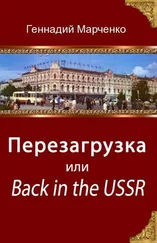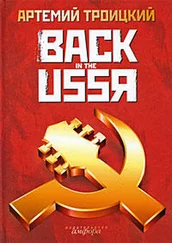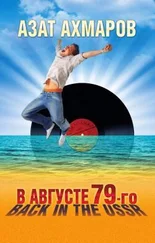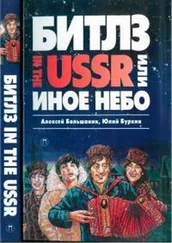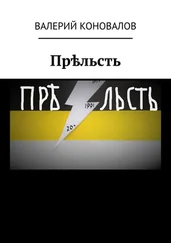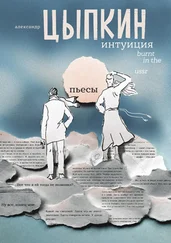I spend the money Blind Pew left me and then wander back to the bazaar. A market woman beckons me over and asks me to help carry her baskets of peppers. Happy to earn a bit of cash, I begin hauling baskets over to her stall.
“If we see your ugly face again you’ll spend the rest of your life working to buy medicine,” a voice growls in my ear.
I turn round. A group of Kurds are glaring at me. There is nothing left to do but get the hell out of here.
I haven’t gone far before a pot-bellied policemen hisses through gold teeth: “You, Vassya! Come here!”
This is the end of my wandering, I think.
The police station is piled to the ceiling with confiscated mandarins. Three other vagrants are loading them into cars. The police order me to help them. When we’re done the cops give us each five roubles and a bottle of chacha. I walk out of the station shaking my head in bewilderment. “I won’t be able to tell anyone about this,” I say to one of the other tramps. “They’ll think I’m a compulsive liar. Russian police would sooner hang themselves with their own belts than behave like that.”
A dark man approaches me. “Want a job Vassya?” [34] Vassya is a generic name other nationalities give to Russians. It has the slightly derogatory connotation of ‘simple village lad.
“What sort of job?”
“Building a fence — three or four days.”
“How much?”
“Ten roubles a day and drink.”
“Where d’you want me to go?”
“To the village. I’ll drive you there and back.” The man points to a car.
I haven’t much choice so I go along. It’s dark when we arrive at the man’s village. He takes me to his farm and directs me to a barn where bunches of bay leaves and eucalyptus are drying. He warns me not to smoke: a spark could send the whole place up in flames. I lie down and sleep in the sweet-scented air.
For three days I dig holes, set posts into them and string up barbed wire. The wire scratches and tears my hands even through gloves. An old man lives in the house with three huge dogs. In the evening he puts out flagons of wine and chacha for me. I don’t touch the chacha for I know that once I start on it I’ll never finish the work.
While I am stretching out the wire I see a Russian working in a neighbouring field. He comes over.
“I’ve been here two months,” he says. They give me all the chacha I want but they never seem to have any money to pay me. Each morning I have to work for my hair-of-the-dog. Then I finish the bottle in the evening. I can’t seem to find a way out.”
The old man sees us talking and calls me over: “Police coming,” he says, making signs that I’ll be arrested.
“Okay, give me my money and I’ll leave.”
“No monny, my son bring monny tomorrow.”
I almost cry with rage. I’ve ripped up my hands for nothing. I know that if I leave without my pay I’ll resent it for the rest of my life. The old man stands watching me, surrounded by his dogs. His eyes laugh at me. There is nothing I can say. Unexpectedly even to myself I go into the barn, grab my things and cry out: “If I don’t see my money in five minutes I’ll burn the place down !”
I show him the box of matches in my fist.
The old man immediately finds the money. Fearing his dogs, I grab a pitchfork, only throwing it away after I have left the farm far behind me.
At Sukhumi railway station I join up with another ‘Vassya,’ a tubercular lad named Artur. We discuss the difficulties of working in the Caucasus.
“It’s worse in the mountain villages,” says Artur. “The Svan people lock you up at night. If you try to escape they’ll cut off one of your fingers. Even if you make them pay up the villagers take the money back off you as you leave. What can you do when you’re alone? They all know each other and the police are their cousins. Yes brother, it’s real slavery up there.
“It’s true no one forces us to work in the mountains, but we can’t earn anything in town. When someone wants to hire me I say to them: ‘I’ll work for you, only no skullduggery! I have no house or car to lose; you won’t have either if I don’t get my pay!’
“But I must say there are some really stupid tramps. Some of them only take jobs so they can nose around for something to steal. They grab whatever they can find, run off, sell it, and get picked up right away at the nearest beer-stall.”
I don’t linger in Sukhumi as I fear the old man’s son might find me. I go back to Sochi and my old haunts.
* * *
My legs are tired after drinking for the whole morning. The woman who sells pies on the sea front has shut her stall and gone off to lunch. I park myself on her stool. Holiday-makers stroll past on their way to the beach. A lad detaches himself from his group: “What you sellin’ here, uncle?”
“Jokes!”
“How much you charge?” he asks in an exaggerated peasant accent.
“Roub’ each,” I answer in the same tone.
“So much!”
“Why, I’m almost giving them away. Roub’ if you don’t know the joke and I’ll give you a roub’ if it’s already grown a beard.”
“Go on then!” The group gather around my stall. I am heavily under the influence of Bacchus and quickly earn 15 roubles, not because my jokes are so good but because the youths are in high spirits and pleased to be entertained.
The next day, after drinking my hair-of-the-dog, I go to collect the baggage I left behind in spring. Much to my surprise, the man who was looking after it has not sold all my things, although he hasn’t left much. He gives me a small rucksack in exchange for my suitcase. Into this I put underwear, photographs, two novels and a cloth-bound exercise book in which I write the crosswords that I like to devise during my sober periods.
I set off for Central Asia, where work is easier to find. Luckily most trains run at night so I’m able to sleep on them and spend the days wandering around Sukhumi, Samtredia, Tblisi and Kirovbad. I travel without tickets. Although I have money I think it’s as crazy to pay for a ticket as it would be to drive my own Mercedes.
Baku reminds me of Central Asian cities, with its cafes serving black tea in tiny narrow-waisted glasses. But I’m not interested in tea. From first thing in the morning I’m drinking beer and the local Agdam fortified wine.
After quenching my thirst I lean against a wall to watch the local people. A passer-by stops to pick up a crumb of bread from the ground. The man presses the crumb to his lips and places it on top of the wall. “So the birds can reach it more easily,” he says, seeing my astonishment, “in Azerbaijan we respect bread, my friend.”
In the bazaar I make the acquaintance of some local tramps and together we earn 15 roubles loading a trailer with oranges. Learning that I have nowhere to spend the night they invite me to come with them. “We have a splendid place. Safe as a tank and warm as a bathhouse. The police don’t check — it’s in the basement of the officers’ flats.”
We buy several bottles and take the tram across town to our lodging place. Going down to the basement, we open a thick steel door and scramble over the central heating pipes, so hot they turn spit into steam. The shelter is as dark as the Pharaoh’s tomb. My new friends light candles and drink themselves to sleep.
I spend the whole night awake, sitting in total darkness after the candles gutter out. I haven’t had enough to drink; it takes a lot to give me a couple of hours’ oblivion. In this state I daren’t even close my eyes or the nightmares will begin. The air around me is heavy with foreboding. I feel like an animal who senses an earthquake approaching. My new acquaintances snore happily while I goggle into the darkness. Rats scurry past. They are not part of my nightmare, for one of my sleeping friends wakes with a yelp: “Bastards! We’ll have to bring some sausage tomorrow or they’ll grow too bold altogether!” He drops off again.
Читать дальше
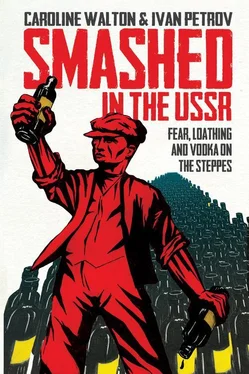
![Геннадий Марченко - Перезагрузка или Back in the Ussr. Книга 1. [СИ]](/books/53319/gennadij-marchenko-perezagruzka-ili-back-in-the-uss-thumb.webp)
